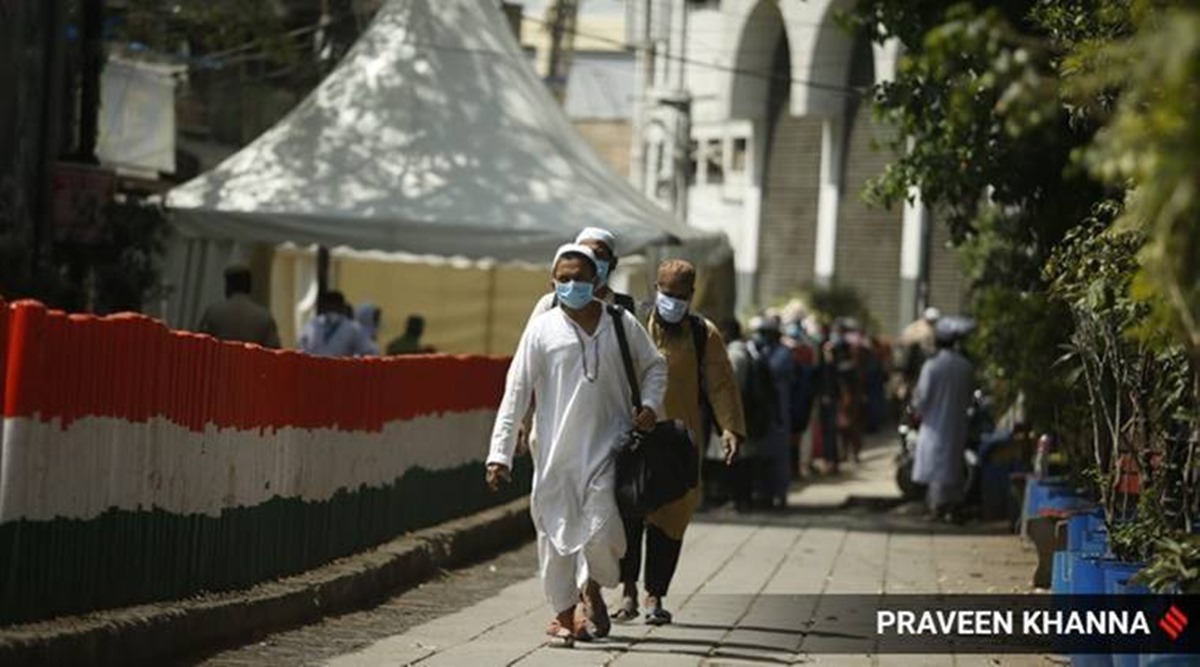 The accused hailed from a number of countries, including the US, Russia, UK, France, Sudan, Tunisia, Sri Lanka, Tanzania, United Kingdom, Thailand, Kazakhstan and Indonesia.
The accused hailed from a number of countries, including the US, Russia, UK, France, Sudan, Tunisia, Sri Lanka, Tanzania, United Kingdom, Thailand, Kazakhstan and Indonesia.Observing that the prosecution failed to “prove the presence of accused inside the Markaz premises” and noting “contradictions” in statements by its witnesses, a Delhi court Tuesday acquitted 36 foreigners facing trial for allegedly flouting Covid guidelines while participating in a Tablighi Jamaat event in Nizamuddin in March that was later linked to infections in 14 states.
While passing the order, Chief Metropolitan Magistrate Arun Kumar Garg pulled up the Station House Officer of Hazrat Nizamuddin, who was the complainant in the case, and the investigating officer for lapses in identification of accused.
Referring to contradictions in the statements of witnesses, the court acknowledged the probability of the plea by some of the accused that “none of them was present at Markaz during the relevant period and they had been picked up from different places so as to maliciously prosecute them upon directions from Ministry of Home Affairs…”
“It is beyond comprehension of the court, as to how IO (Inspector Satish Kumar) could have identified 952 foreign nationals out of 2,343 persons who, as per SHO, were found flouting the guidelines, without any Test Identification Parade (TIP), but on the basis of list provided by MHA (Ministry of Home Affairs),” the court said.
The court also noted that the SHO, Inspector Mukesh Walia, made improvements in his statement. “The SHO was aware of the actual number of persons gathered at Markaz since the beginning and still failed to take any timely measures to ensure dispersal of the said gatherings despite being aware of Government guidelines,” it said.
“Else, if he was not so aware of the actual or even approximate numbers staying inside Markaz till the last day of evacuation exercise, he in all probability is deposing falsely about his daily visits to Markaz…In any case, his testimony has failed to pass the test of creditworthiness and hence identification by him of the accused persons in the court is not sufficient to discharge the onus of prosecution to prove the presence of accused at Markaz during the relevant period,” the court said.
The accused hailed from a number of countries, including the US, Russia, UK, France, Sudan, Tunisia, Sri Lanka, Tanzania, United Kingdom, Thailand, Kazakhstan and Indonesia.
Fahim Khan, lawyer for the accused, welcomed the ruling and said his clients had been “falsely implicated”. “We argued that out of the 36, 10 were not even present at the spot. The police had filed documents showing their presence, which were contradictory. The prosecution could not prove that the accused persons did not maintain social distancing or broke other Covid guidelines,” he said.
The verdict was also welcomed by the accused. “We are happy with the judgment,” said Irfan Khan (39), a mechanical engineer from Australia, who was on trial with his wife. Irfan said had come to Delhi to visit friends and religious sites when he was detained. Like the other accused, he spent 60 days in a detention centre before being shifted to a court-approved accommodation.
“I knew that in India, you can win a case if you defend it. In Australia, there was a judge who said if you want the truth go to a masjid, if you want justice go to a court. That inspired me to fight my case rather than take a plea bargain,” he said.
The 36 were the last of the accused from abroad who were put on trial in the case. According to court records, 952 foreigners were accused of breaking Covid violations by Delhi Police. Over 900 of them had pleaded guilty as a part of a plea bargain as they did not want to stay back in India to face trial and wanted to be reunited with their families.
The 36 are among 44 foreigners who chose to stand trial on charges of violating visa rules and Covid regulations — eight were discharged in August by the court after it found that there was no “prima facie evidence” against them.
The trial commenced on August 10 following directions from the Supreme Court, and the final arguments were heard over three days from December 3.
During the trial, the prosecution argued that “social distancing and other guidelines were not followed and that large gatherings were being held without following the norms of social distancing and other safety directions”.
Stating that the Covid norms were in the public domain, the police argued that “accused persons had both malignantly and negligently participated and gathered inside the Markaz, thereby, increasing the spread of Corona Virus infection”.